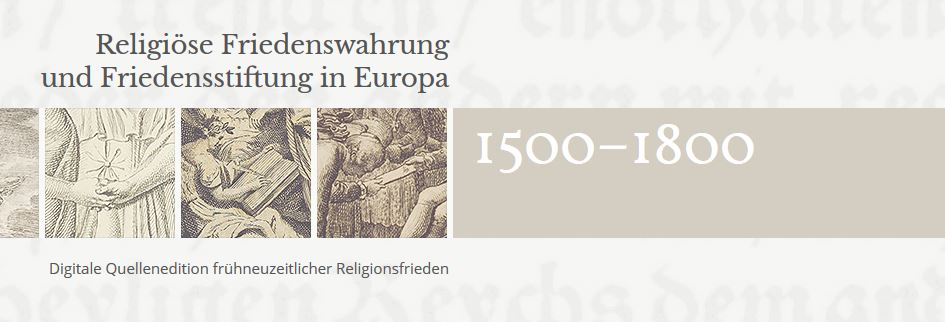Prof. Dr. Dr. h.c. Irene Dingel

Director, Department Abendländische Religionsgeschichte 2005–2022
Room: Akademie der Wissenschaften und der Literatur, Projekt »Europäische Religionsfrieden Digital« (EuReD), Geschwister-Scholl-Str. 2, 55131 MainzPersonal Details:
Since April 2022 Senior Research Professor of the Johannes Gutenberg University and the Academy of Sciences and Literature Mainz.
Information of Professor Dingel's current research and publications can be found on her personal websites of JGU and the Academy of Sciences and Literature, see the links in the right-hand column.
Research Interests:
Awards:
Research projects:
"Controversia et Confessio". Digital Edition on Creed Formation and Confessionalization (1548–1580)
The long-term research and editorial project "Controversia et Confessio" has been based at and supported by the Academy of Sciences and Literature in Mainz since 2007. It is integrated into the research programme of the Leibniz Institute of European History and also involves the cooperation of the Johannes Gutenberg University in Mainz and the Herzog August Library in Wolfenbüttel. With ‘Streitkultur, Akteure, Wirkungen. The Lutheran confession-building process in the second half of the 16th century’, the final volume 12 was published at the beginning of 2025 and the project has come to an end.
European Religious Peace Agreements - A Digital Edition (EuReD)
The long-term project "European Religious Peace Digital" was approved within the framework of the Academies Programme jointly funded by the federal and state governments. It is being carried out at the Academy of Sciences and Literature Mainz in cooperation with the Leibniz Institute for European History (IEG) and at the University and State Library Darmstadt (ULB).
ReIReS – Research Infrastructure on Religious Studies
The IEG was one of the cooperation partners of the Horizon 2020 funded project "Research Infrastructure on Religious Studies" (ReIReS). ReIReS was a starting community whose aim was to create a unique and groundbreaking research infrastructure on religious studies within the European Research Area.
Religious Preservation of Peace and Peace-making in Europe (1500–1800) – Digital Edition of Early Modern religious Peace Treaties

Religious Toleration and Peace (RETOPEA)
Narratives on Europe today, are often characterised by conflicting views on the relationship between religion and society. However, historical dimensions of these narratives have often been neglected in sociological research, and at the same time, the voices of religious people remain largely absent from legal and political discourses. The RETOPEA project carried out both research and innovation activities to tackle this challenge. The project was successfully completed in October 2022. In early 2025, the final publication ‘Teaching and Learning about Religious Diversity in the Past and Present: Beyond Stereotypes’, edited by Karel van Nieuwenhuyse, John Maiden and Stefanie Sinclair, was published by Springer Nature.
Research Training Group: "The Christian Churches and the Challenge of 'Europe'"
The research training group examined reactions in the process of European unification, as well as the repercussions and activities that the process gave rise to in the area of the churches. The project also focused on the efforts of the churches to insert religious concepts of values into the political processes.


